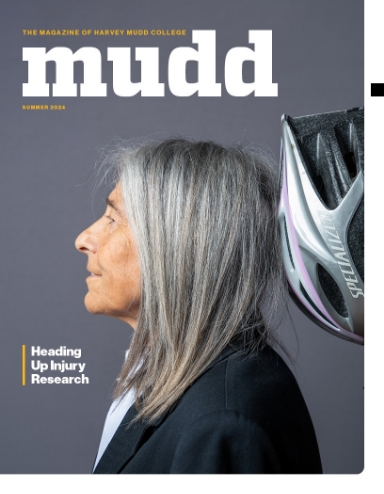Addressing Systemic Racism
June 24, 2020Dear Students, Faculty and Staff,
Black Lives Matter. We condemn these senseless killings. We condemn police violence. We condemn the crushing sense of injustice that we feel when we hear these stories day in and day out. We believe that no Black person should be afraid of a traffic stop, of a jog in their own—or any—neighborhood, or of just sitting in their own home. But they are. And it is incredibly challenging for those of us who are not Black—who’ve never experienced that fear for a single moment in our lives—to even remotely comprehend what that is like. To understand that for some members of our community, this is everyday life. And it has got to stop.
How does Harvey Mudd College, a small liberal arts college for STEM, meet the challenge of this moment and do something that will have meaning? As a team, we have debated and discussed many different approaches to addressing the issues and demands you’ve shared. While we know we don’t have all of the answers, we know there are some immediate steps that can be taken. We are committed to continuing our work on this. The list below is only a beginning. We will be sharing more initiatives in the coming weeks. Here are the steps that we can share right now:
- Harvey Mudd College is becoming an institutional member of the National Center for Faculty Development & Diversity, which supports faculty, postdocs and graduate students through mentorship, training opportunities, coaching and peer support.
- Together, with the other Claremont colleges, we are exploring ways we can work with other institutions that are committed to addressing systemic racism. We hope to be able to share more about this partnership in the coming days.
- The Division of Student Affairs will begin an Intergroup Dialogue Program on Race and Ethnicity. The program will recruit interested faculty, students and staff to be trained facilitators for an 8-week module that engages participants to explore and reflect upon their personal and social responsibility for building an equitable and socially just society.
- The Office of Institutional Diversity and Institutional Research will host a series of Equity Scorecard Sessions featuring Dr. Estela Bensimon in the fall and spring semesters. This professional development opportunity will increase knowledge on interrogating numerical data and how to see patterns that lead to inequities for students of color. During these sessions, participants will gain an understanding of the Equity Scorecard process while also beginning the process of identifying 10-15 indicators for an equity scorecard for their areas.
- The Division of Student Affairs will add specific anti-racism sessions as part of the 2020 New Student Orientation and sponsor book clubs on the topic of anti-racism beginning this summer and throughout the academic year.
- The Office of Advancement will be working with Academic Affairs to begin major fundraising efforts to raise resources to develop curriculum that addresses systemic racism.
Supporting our Black students, faculty and staff, as well as our other students, faculty and staff of color will continue to be a priority for our work as a Cabinet.
Sincerely,
Maria Klawe, President
Karen Angemi, Director of the President’s Office and Secretary to the Board
Thyra Briggs, Vice President for Admission and Financial Aid
Andrew Dorantes, Vice President for Administration and Finance/Treasurer
Anna Gonzalez, Vice President for Student Affairs and Dean of Students
Tim Hussey, Chief Communications Officer
Hieu Nguyen, Vice President for Advancement
Lisa Sullivan, Vice President for Academic Affairs and Dean of Faculty
Joseph Vaughan, CIO and Vice President of Computing and Information Services
